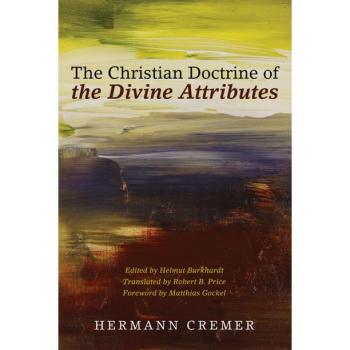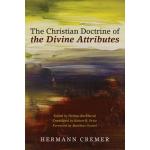A Problem in Theology: Distinctions without Differences
One thing that puzzles me (and more) in theology is the frequent appeal by theologians (including philosophers doing theology) to distinctions that seem to me to have no real differences. I cannot claim to be innocent; I’m sure that (at least to others) I have sometimes fallen into the same trap. But when I do I expect to be called on it.
This phenomenon is well known to everyone—outside theology if not in it. Most people call it “splitting hairs.” What that means is attempting to divide what cannot really be divided. Much ink has been spilled in theology over this phenomenon because it’s not always easy to tell when it’s happening. Many scholars see a difference between two concepts that others cannot see. Or they claim to.
One example in theology is the claim often made by some Calvinists that unconditional election of some fallen humans to salvation is not “double predestination.” They talk about “single predestination” while admitting that God foreordains that certain persons shall not be saved. When challenged they say that God’s decree of reprobation is carried out differently than his decree of election; God merely “passes over” the non-elect while he regenerates the elect.
This is, in my opinion, splitting hairs, making a distinction without any real difference. Now, if the Calvinist simply said that God operates differently toward the elect than the non-elect/reprobate, that would indicate a real difference. Of course God does that (in Calvinism). But my complaint is aimed at the claim that belief in election and reprobation by decree is not necessarily “double predestination.” Within the context of non-universalist Calvinism, “double predestination” versus “single predestination” is a distinction without a difference.
I believe Calvinism is riddled with such distinctions without differences. But such pop up all over the place in theology; it’s not a problem confined to Calvinism. One that never ceases to befuddle me is that made by many conservative evangelicals—between “dictation” and “plenary verbal inspiration” of the Bible. Many conservative evangelicals (such as Millard Erickson) go to great lengths to attempt to demonstrate that “plenary verbal inspiration” is not the same as dictation inspiration. At the end of their explanations I’m left scratching my head because this appears to be a distinction without a difference no matter what they say. They say, for example, that in the process we call “divine inspiration of Scripture” God directed the human authors to the very words he wanted them to use without over riding their personalities or using them mechanically. Millard Erickson, for example, in Christian Theology, appeals to a form of compatibilism to explain how plenary verbal inspiration is different from dictation. God, he says, prepared Paul (for example) to be the kind of person who would freely choose to write the very words he wanted Paul to use in writing his inspired epistles. To me, the typical conservative evangelical explanation of the “difference” between verbal plenary inspiration and dictation inspiration disappears once inspected closely. It’s a distinction without a difference.
Recently, here, I have been told that philosophers typically distinguish between “hard determinism” and “soft determinism” and that this has relevance to theology in the area especially of God’s sovereignty in providence and predestination. I don’t deny that philosophers operate with such a distinction, but for the life of me I cannot see the difference. As I said in response to one commenter “Determinism is determinism.”
Apparently, from what I have been able to discern by looking into the matter, the difference between “hard determinism” and “soft determinism” is supposed to be that the former admits of no free will while the latter admits of compatibilist free will. Here is why I fail to see the difference in this distinction. “Compatibilist free will” is free will that is compatible with determinism. It is not “power of contrary choice” in terms of real ability to do otherwise than one does. It is simply acting according to one’s own inner states. One’s decisions and actions are determined by one’s “inner states” such as dispositions, inclinations, motives, desires, etc. But to avoid libertarian free will the compatibilist has to say that these inner states are not one’s own freely chosen and developed; for it to be compatibilist (compatible with determinism) the inner states must be imparted to the deciding and acting agent from somewhere other than his or her own volition. If a person says “No, the inner states that determine the agent’s decisions and actions are his or her own freely developed” then this is libertarian free will (in my use of that term). Or at least an odd kind of compatibilism not really compatible with determinism.
No believer in libertarian free will that I know would ever say that every decision and action of a free agent is totally undetermined. Every believer in libertarian free will that I know will admit that many decisions and actions of agents are so strongly influenced by his or her inner states as to be, for all practical purposes, not free (in the sense of ability to do otherwise). But every believer in libertarian free will says that such not free decisions and actions flow from previous free decisions and actions that “locked in” the person’s character, consciousness, personality, mental states, etc., such that he or she began to decide and act out of a settled set of inner states previously personally and freely developed. This is not compatibilism as I understand it. If it is, it’s a strange kind of compatibilism or a combination of compatibilism and libertarian freedom. But I have personally never met or read a serious believer in libertarian freedom who argues that all of every free agent’s decisions and actions simply “come out of nowhere.”
This is why I have trouble seeing the difference in the distinction between “hard determinism” and “soft determinism” even though I am convinced the distinction is one often appealed to by very intelligent thinkers. So-called “soft determinism,” if it works solely with a compatibilist account of free will “all the way down,” so to speak, is determinism pure and simple whatever hairs it splits.
Note: If you choose to respond with a comment or question, please be sure not to base it on a misunderstanding of what I wrote above. If you’re not sure you understood what I wrote; ask for clarification. (But please be specific.) If you are certain you understood and agree or disagree, please say something about why. Please be calm, civil and respectful even in strong disagreement. Please do not use your comment to hijack my blog to promote your own agenda; stick to the subject. Thank you.















